Podcast: Play in new window | Download
I had the privilege of interviewing Claire De Boer awhile ago. She is a writer, teacher and a visionary with a passion for stories and a strong belief in their power to connect us. She stands for love, community and to see a world healed and connected through the power of story.
Her vision is to reach out to those people whose story and beliefs about who they are is holding them back from living an abundantly whole and happy life. Through the process of creative writing it’s Claire’s goal to bring about healing, change and connection to self. She also helps people to write their story in a workshop she offers on her website at TheGiftofWriting.com. You can also find Claire on Facebook and Twitter.
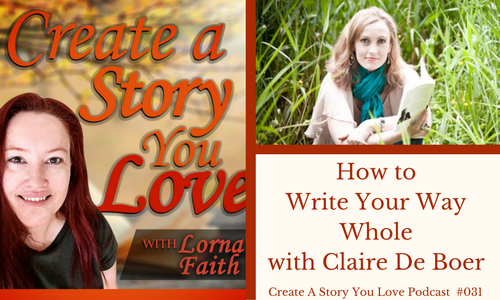
In the update I talk about my big aha moment earlier this week as I was listening to a video on success mindset for entrepreneurs by coach Todd Herman.
I realized that I’ve been self-sabotaging at different points along my writing journey by having an OWW Brain rather than a WOW Brain. Which I think is what I was working through during NaNoWriMo. I did get a little over 30,000 words written, but didn’t
meet my goal of 50,000 words written. I was originally quite bummed, but this PDF helped me switch my mindset to realizing that I was farther ahead then if I hadn’t started NaNoWriMo. So if you didn’t meet your writing goals last month, be encouraged that you’re still farther ahead if you worked on writing your story 😉
If you want, you can read more on that in this Free Video and PDF. I also mention a helpful ebook that has made understanding and writing emails a little easier for me, written by Kirsten Oiliphant. And if you’re a fiction writer who like me, needs tips on understanding ‘show don’t tell’ then, Understanding Show Don’t Tell(And Really Getting it) by Janice Hardy, should help out.
Click to Watch the Video Interview
Summary of the Interview:
*Claire shares a little of her story. She grew up in a broken home and she later realized she suffered a lot from depression as a child and that continued into adulthood. As she matured, she kept a lot of her feelings about her childhood suppressed, she didn’t talk about it or even acknowledge that she had depression in the first 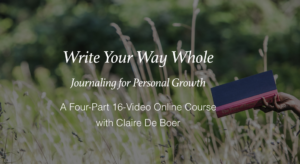 place. As a child she had no idea this is what she suffered from, she just thought the life she was living was normal. But, as she became an adult and had trouble in relationships and relating to other people, she realized how much of a profound effect her childhood had, had on her. It wasn’t until several years ago, when she started writing about it, that she realized that to come to a place of self-awareness and healing, that she needed to get it all out – to put her story all down on paper.
place. As a child she had no idea this is what she suffered from, she just thought the life she was living was normal. But, as she became an adult and had trouble in relationships and relating to other people, she realized how much of a profound effect her childhood had, had on her. It wasn’t until several years ago, when she started writing about it, that she realized that to come to a place of self-awareness and healing, that she needed to get it all out – to put her story all down on paper.
*Claire shares that as she started to write down her story, she found a fresh perspective, started to face her depression and started to do something about it. And she faced some of those childhood memories that were really raw and painful, to wade her way through them and see them a little differently. Claire says writing down her story had a profound affect on her.
*Once she discovered the healing power of writing, she made a shift to non-fiction because she saw how much it helped her and she wants to help others in their journey too.
*Many of people have a fear of sharing who they really are and their authentic story. Claire says she’s always found that it’s always brought her closer to the person who is sharing their story. She says in most cases people aren’t judgemental or critical about your story, usually it brings more of a connection and brings people closer together. We all have a fear of vulnerability to expose ourselves and come out from behind that safe wall. But that’s where we grow.
*Claire encourages people to just start by sharing your story in a journal and maybe gradually moving toward sharing your story in a small group or via a blogpost. When you blog, it’s comforting to know that when you hit publish, you’re not looking at the people who are reading your story. She says its best to start with the strongest emotions as you start journalling. It’s quite often an uncomfortable place, but its usually the right place.
*We talk about Morning Pages which Julia Cameron recommends in her book The Artist’s Way.
Writing these 3 pages every morning – writing just whatever is in your head – is stream of consciousness writing that opens you up to who you are and shows you your patterns of thinking. Claire says that’s a first step to discovering more of yourself, then after that work using specific journalling techniques to help overcome toxic thinking.
*When she struggled with depression a few years ago and writing was often the last thing she wanted to do. But she began journalling anyway. It was by writing each morning, that she began to see patterns of toxic thinking, which is a huge part of depression. And it helped her to see where her thoughts were going and it’s a place where she became so much more self-aware.
*It’s helpful to write out your thoughts each morning. Write out what you want to get from the day, write positive affirmations and try to turn toxic thoughts into a more positive slant. All these things are helpful. Anything where you’re focussing on how you feel and where you want to go, is really transformative and helpful.
*Claire recommends specific journalling techniques that she uses -and one of them is dialogue. For example, people with depression can set up a dialogue between themselves and another part of yourself. Like dialoguing with yourself and your inner child; or with yourself and your depression or a dialogue with yourself and your younger self. By doing this you can gain answers in your subconscious mind about how you’re feeling and your thought process, which helps to give you a different perspective. When you can pinpoint your thoughts throughout the day and try to turn those thoughts in a more positive direction, that’s when you begin to see a transformation in your life.
*A big part of her morning ritual is prayer, meditation and journalling – sort of a self kindness time. These practices really help clear toxic thinking. A resource that really helps to understand toxic thinking and other details that block us – like forgiving people of hurts and offense that you’ve gone through – is the book, S
*Writing helps you see a different perspective of the people involved in the hurts that have occurred in your life. Forgiveness is critical to getting rid of anxiousness and depression and can be a lifelong process. To forgive the person who hurt you – its not saying what they did was okay or excusing their behaviour – but to say you are willing to let go and have that release. This is really amazing to helping you heal.
*Claire says as she has coached people in her workshops, they have come away with more of a freedom from writing things out and get a different perspective which opens up lines of communication. It’s a little like ripping off a bandaid – but that’s where the healing begins. When we remove the masks that are on ourselves that’s when we really connect with one another.
*Start with 15 minutes a day and journal at the start of each day. You will be amazed at what you discover about yourself. Sometimes we’re better at showing other people kindness, but we’re not as kind to ourselves. This is one way to do that for yourself.
Besides teaching in a classroom environment, Claire now teaches through her workshops online. Her online courses include: Write Your Way Whole: A Journal for Personal Growth; Write Your Story: Creating Your Memoir; and the FREE online course – Soul Writing 101: A 6 week Journalling Course towards personal Growth.
You can find other workshops and helpful blogposts on Claire’s website www.TheGiftofWriting.com.
How do you find journalling helpful? Please share your thoughts in the comments so we can learn from each other.


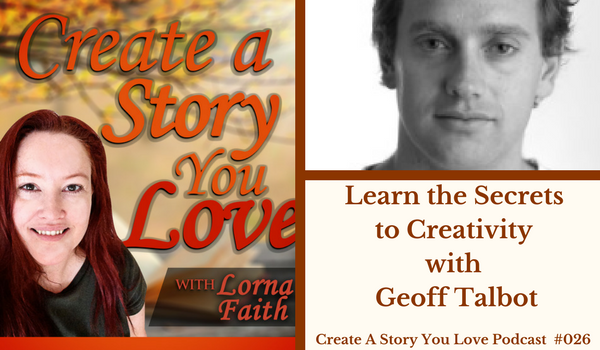
 Geoff Talbot shares his own story growing up in New Zealand as the youngest of 4 children to conservative parents who were of the Builder Generation. He says he took their advice and went off to College, graduating at 22 years old as a Veterinary Surgeon. But it wasn’t until he had been working for 6 months in that job that he realized that this was not what he wanted to do for the rest of his life.
Geoff Talbot shares his own story growing up in New Zealand as the youngest of 4 children to conservative parents who were of the Builder Generation. He says he took their advice and went off to College, graduating at 22 years old as a Veterinary Surgeon. But it wasn’t until he had been working for 6 months in that job that he realized that this was not what he wanted to do for the rest of his life. 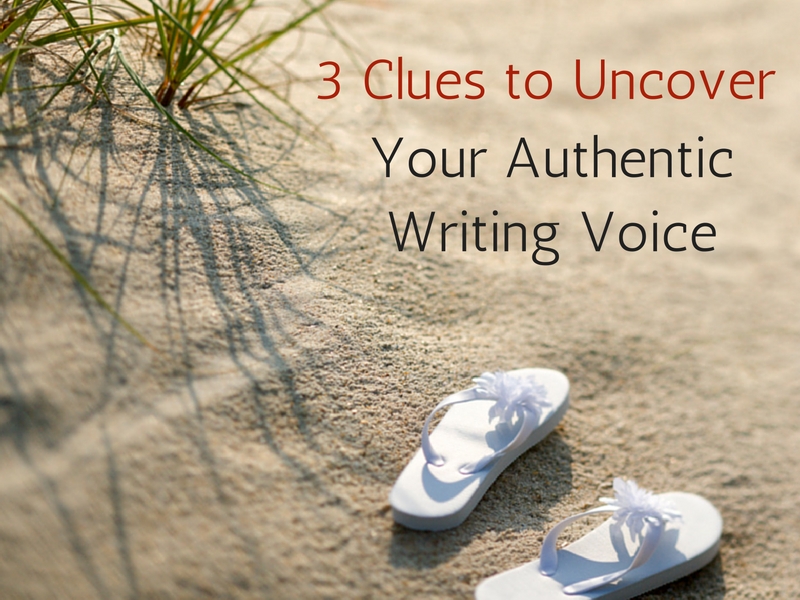
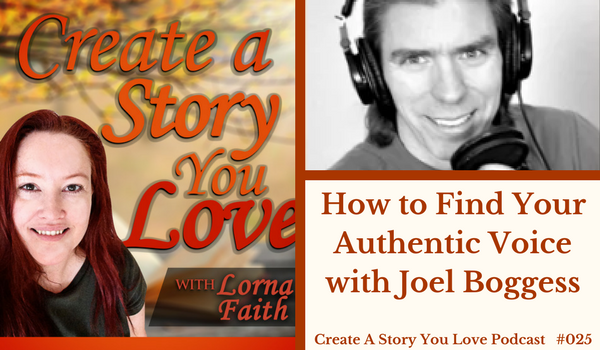


 utines we participate in for the most part.
utines we participate in for the most part.